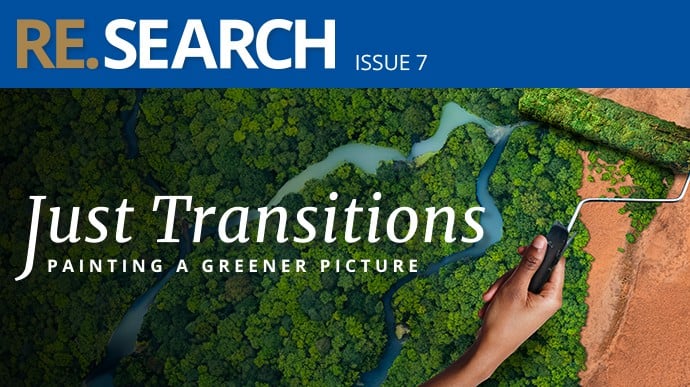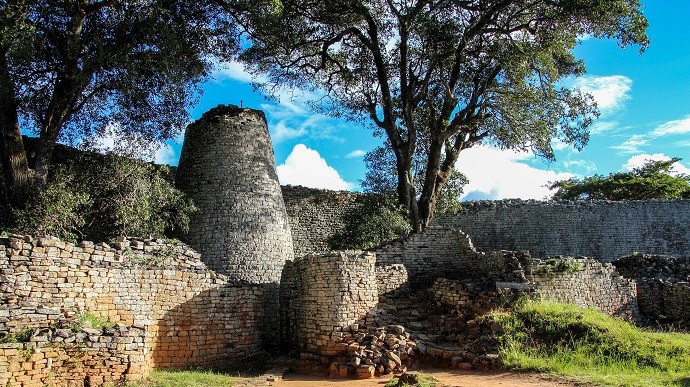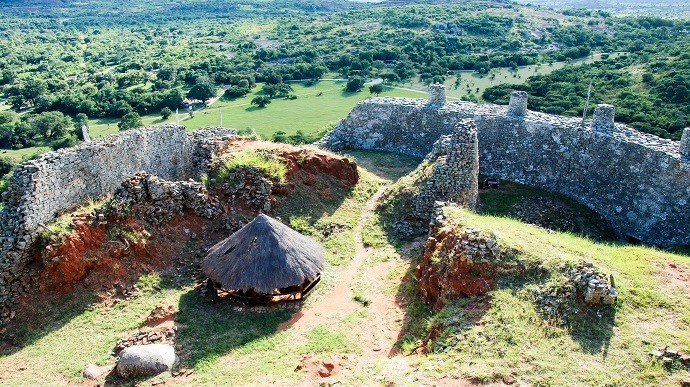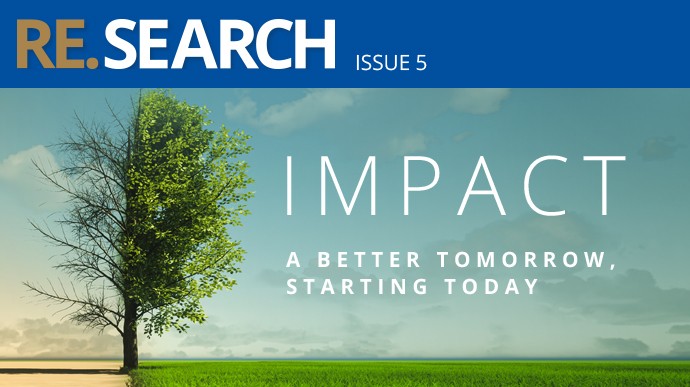 Story
Story
The articles in this edition showcase work from all nine of our faculties, and underscore our University’s slogan ‘Make today matter’. RE.SEARCH has been named South Africa's top corporate publication as the winner of the 2024 SA Publication's Forum Awards. It is a runner up and finalist in the Excellence category for Communication (runner up), Design and Photography (finalist) and the...
 Story
Story
This edition explores the theme of ‘Just Transitions’ which is generally characterised by ideas of sustainability and the greening of the economy, and supported by the ideas of resistance, rethinking and restructuring society for a better and more equitable future. As one of the most impactful producers of research in South Africa, UP has several specialised research teams that are on the...
 Story
Story
A study involving the University of Pretoria (UP), along with academics from Great Zimbabwe University, University of Cambridge in the UK and Aarhus University in Denmark, has revealed how Great Zimbabwe – the largest city in Southern Africa during the Middle Ages – stored water in dhaka pits to overcome severe water scarcity and drought.
 Gallery
Gallery
Water security is currently among the most significant global challenges for human subsistence and environmental health. UP archeologists have discovered that during the middle ages, the people of Great Zimbabwe developed means to conserve water which could make for effective strategies in terms of water management and conservation today.
 Story
Story
This issue features research from all of the University of Pretoria's nine faculties and our business school, the Gordan Institute of Business Science (GIBS) and shows how our research is opening a new world and a better future.
 Story
Story
This issue of RE.SEARCH looks at the impact of the University of Pretoria's research from early childhood interventions and the use of traditional medicines for holistic nursing to the role of women in peacekeeping efforts. The issue also provides insight into the critical question of coal power supply and how it will affect the economic opportunities of communities in the future.
Copyright © University of Pretoria 2025. All rights reserved.
Get Social With Us
Download the UP Mobile App